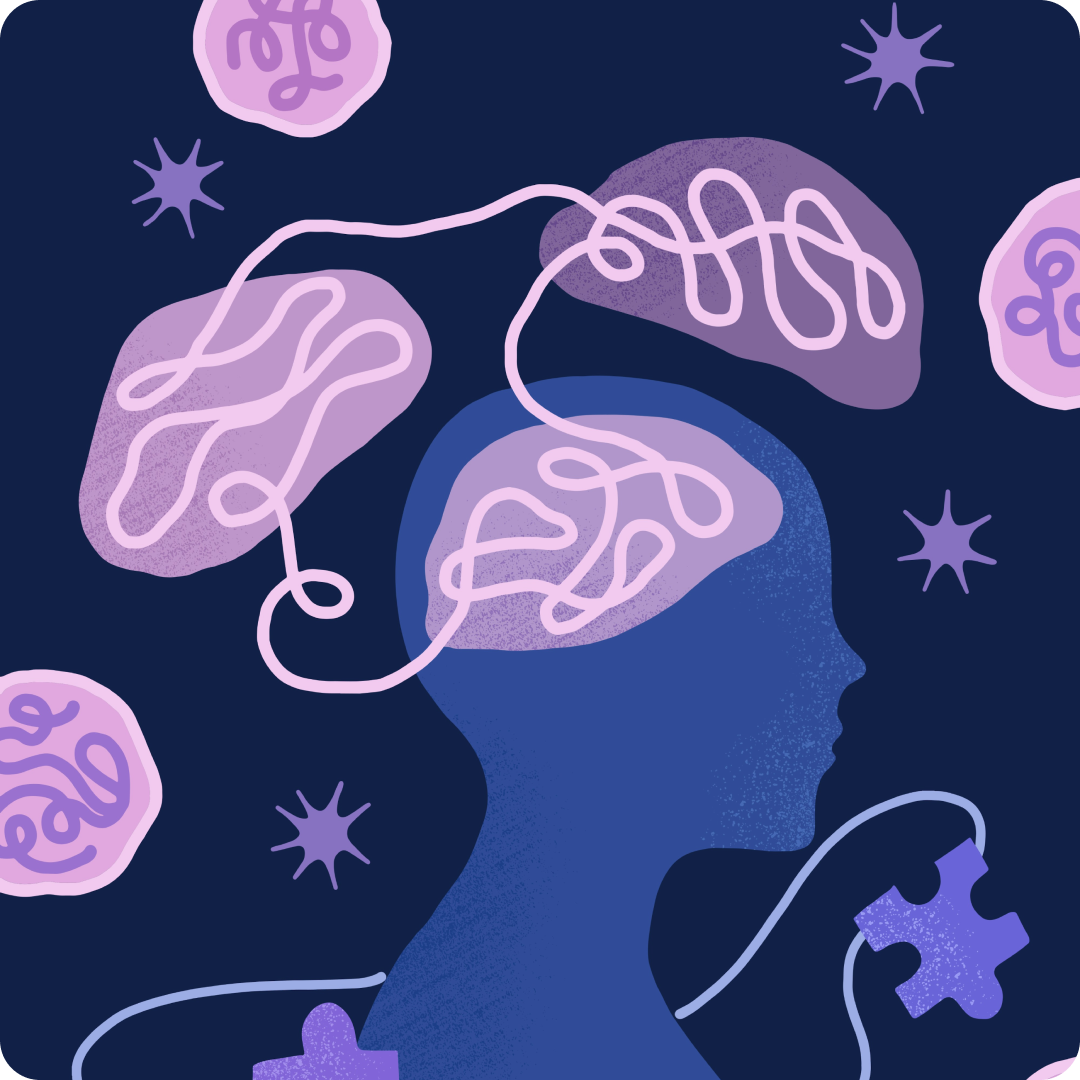Functional Neurological Disorder ICD-10 Codes
Download the mental health ICD-10 codes cheat sheet
Download free resource
Enter your email below to access this resource.
By entering your email address, you are opting-in to receive emails from SimplePractice on its various products, solutions, and/or offerings. Unsubscribe anytime.

Looking for functional neurological disorder ICD-10 codes?
This article provides an overview of the functional neurological disorder ICD-10 code, including diagnostic criteria and differential diagnoses. In addition, this article summarizes the history of functional neurological disorder ICD-10 coding and the controversy around the use of the term “conversion disorder.”
What is the ICD-10?
The International Classification of Diseases (ICD-10) is a clinical guide published by the World Health Organization (WHO) and used by clinicians around the world.
The ICD-10 describes health conditions using standard diagnostic language, which helps to collect data and identify health trends. In the United States, clinicians use the ICD-10-CM, a clinical modification of the ICD-10 used for diagnosis codes.
Mental health providers in the United States also use a similar text, the American Psychiatric Association’s (APA’s) Diagnostic and Statistical Manual of Mental Health Disorders, fifth edition (DSM-5). The current version of the DSM-5 provides more comprehensive diagnostic information and includes relevant coding information, such as the correct functional neurological disorder ICD-10 code.
Determining the right ICD-10 code to use is an essential part of being a mental health clinician when it comes to writing clinical notes, making a diagnosis, and treatment planning.
Clinicians use ICD-10 codes to record a diagnosis following a mental health evaluation, and to justify medical necessity on billing documents for insurance reimbursement.
Bookmark this article as a reference to use next time you need to access the information about the functional neurological disorder ICD-10 code.
What is the functional neurological disorder ICD-10 code?
Finding the right functional neurological disorder ICD-10 code can be a challenge because, like some other mental health disorders, it is labeled and categorized differently in the ICD-10 and the DSM-5.
In the ICD-10, functional neurological disorders are listed in the psychiatric section as conversion (or dissociative) disorders.
However, this term is contested by some physicians given the experience of both neurological and mental health symptoms, which we explain in the history of functional neurological disorder ICD-10 section below. To complicate this further, the DSM-5 contains separate sections for dissociative disorders and functional neurological disorders/conversion disorder.
The ICD-10 lists the functional neurological disorder ICD-10 codes as follows:
F44: Dissociative and conversion disorders
- F44.4: Conversion disorder with motor symptom or deficit
- F44.5: Conversion disorder with seizures or convulsions
- F44.6: Conversion disorder with sensory symptom of deficit
- F44.7: Conversion disorder with mixed symptom presentation
F44.8: Other dissociative and conversion disorders
- F44.81: Dissociative identity disorder
- F44.89: Other dissociative and conversion disorders
F44.9: Dissociative and conversion disorder, unspecified
In the DSM-5, the functional disorder codes differ by symptom, such as the functional neurological symptom disorder with mixed symptoms ICD-10 code or the ICD-10 code for functional neurological disorder unspecified.
The codes in the DSM-5 are listed as follows:
Functional neurological symptom disorder (Conversion disorder)
- F44.4: Functional neurological symptom disorder with weakness or paralysis
- F44.4: Functional neurological symptom disorder with abnormal movement
- F44.4: Functional neurological symptom disorder with swallowing symptoms
- F44.4: Functional neurological symptom disorder with speech symptom
- F44.5: Functional neurological symptom disorder with attacks or seizures
- F44.6: Functional neurological symptom disorder with anesthesia or sensory loss
- F44.6: Functional neurological symptom disorder with special sensory symptoms
- F44.7: Functional neurological symptom disorder with mixed symptoms
Clinicians must also specify if it’s an acute episode with symptoms present for less than six months or persistent, with symptoms occurring for six months or more.
Also, specify if the diagnosis is:
- With psychological stressor (and note stressor)
- Without psychological stressor
History of functional neurological disorder ICD-10 code
Historically, functional neurological disorders have been classified exclusively in the psychiatry section as dissociative disorders for over 100 years. This dominant psychiatric approach to functional neurological disorders has been reflected in the International Classification of Diseases text, and even in the recent ICD-10.
This has led to patients feeling stuck between two specialties: neurology and psychiatry.
“For most of the 20th century, the patient with a functional disorder has often been a persona non grata in the neurology service, a patient with a disease to be excluded but not ultimately of interest to the neurologist,” writes authorJon Stone, fellow of the Royal College of Physicians, and colleagues in a Neurology article published in 2014.
The authors argue for the inclusion of functional neurological diagnoses in both neurology and psychiatry sections of the ICD-11, explaining that in the last two decades, times have evolved and the view in the medical community has changed.
“In the last 10–20 years, the pendulum has shifted back to a view that both mind and brain, both psychiatry and neurology, have important perspectives to offer these patients,” explain the authors. “There are multiple arguments why feigning is not a plausible explanation for the vast majority of patients with these disorders.”
This view is reflected by the American Psychiatric Association (APA), too. The APA changed the name of the condition in the most recent version of the DSM-5, placing “functional neurological disorder” before the parentheses “conversion disorder.”
They say this reflects the wider scientific and clinical perspective, as well as the patient community's view, which has stopped using the term “conversion disorder.” The APA also stated that conversion disorder “is not an etiologically neutral term.”
Diagnostic criteria for functional neurological disorder
The diagnostic criteria for functional neurological disorder ICD-10 code F44 in the DSM-5 stipulates:
- One of more symptoms of altered voluntary motor or sensory function.
- Clinical findings can provide evidence of incompatibility between the symptom and recognized neurological or medical conditions.
- Another medical or mental disorder does not better explain the symptom or deficit.
- The symptom or deficit results in clinically significant distress or impairment in social, occupational, or other vital areas of functioning or warrants medical evaluation.
Differential diagnoses
Even though clients may meet some criteria for functional neurological or conversion disorder, there may be a more appropriate diagnosis, such as:
- Recognized neurological disorders
- Somatic symptom disorder
- Factitious disorder or malingering
- Dissociative disorders
- Body dysmorphic disorder
- Panic disorder
Sources
- American Psychiatric Association. (2013). Diagnostic and statistical manual of mental disorders (5th ed.).
- American Psychiatric Association. (2022). Functional neurological disorder (conversion disorder). Rationale for change.
- ICD-10-CM code for dissociative and conversion disorders F44. ICD-10 Code for Dissociative and conversion disorders- F44- Codify by AAPC. (2024).
- National Institute of Neurological Disorders and Stroke (2024). Functional Neurological Disorder.
- Stone, J., Hallett, M., Carson, A., Bergen, D., & Shakir, R. (2014). Functional disorders in the Neurology section of ICD-11: A landmark opportunity. Neurology.
How SimplePractice streamlines running your practice
SimplePractice is HIPAA-compliant practice management software with everything you need to run your practice built into the platform—from booking and scheduling to insurance and client billing.
If you’ve been considering switching to an EHR system, SimplePractice empowers you to streamline appointment bookings, reminders, and rescheduling and simplify the billing and coding process—so you get more time for the things that matter most to you.
Try SimplePractice free for 30 days. No credit card required.

